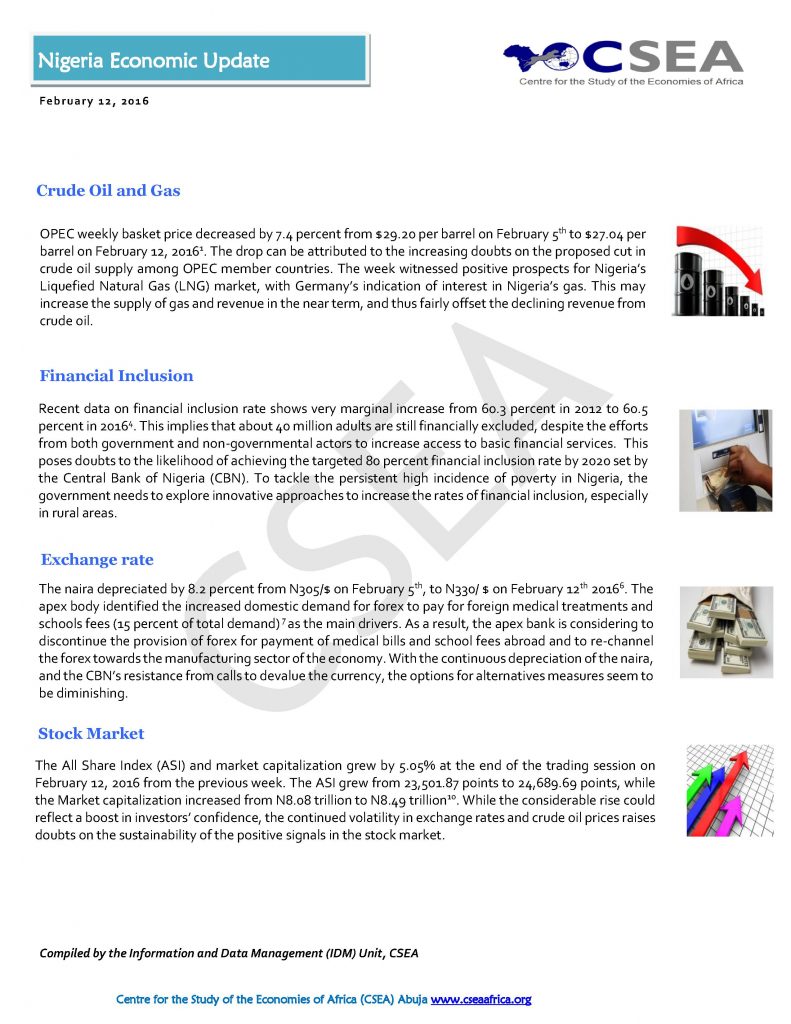Macroeconomic Report & Economic Updates

February 26, 2016
Nigeria Economic Update (Issue 9)
The naira depreciated by 8.2 percent from
N305/$ on February 5th, to N330/ $ on February 12th 20166. The apex body identified the
increased domestic demand for forex to pay for foreign medical treatments and
schools fees (15 percent of total demand) 7 as the main drivers. As
a result, the apex bank is considering to discontinue the provision of forex for
payment of medical bills and school fees abroad and to re-channel the forex
towards the manufacturing sector of the economy. With the continuous
depreciation of the naira, and the CBNs resistance from calls to devalue the
currency, the options for alternatives measures seem to be diminishing.
Related
Nigeria Economic Update (Issue 3)
The
Nigeria stock market indices; All Share Index (ASI) and Market Capitalization
declined by 2.4 percent to close at 26537.36 points and N9.12 trillion
respectively at the end of the trade session this week8 The decline
in the indices, which is attributed to the low subscription for stocks in the
market, led to the partnership between Security and Exchange Commission (SEC)
and Debt Management Office (DMO) to salvage the financial system.
